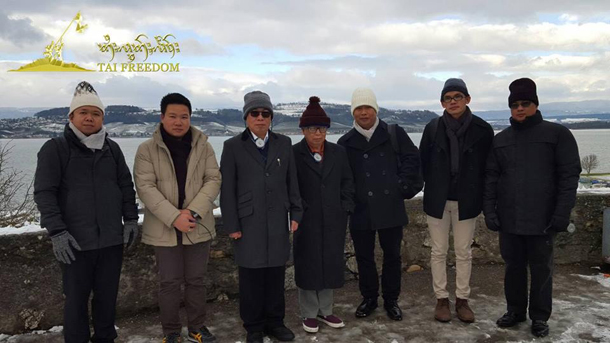Burma’s transition is an example of top-down reform and differs from Switzerland’s bottom-up federalism, said a senior member of a Shan delegation that recently returned from an exposure trip to Switzerland.
Khuensai Jaiyen, a long-time advisor to the Restoration Council of Shan State (RCSS), the political wing of the Shan State Army-South (SSA-S), told The Irrawaddy that he and his fellows were invited to study democratic systems and federalism in Switzerland by the country’s Foreign Ministry. The visit lasted from January 16-25 and was arranged by the Swiss Embassy in Rangoon.
“Their democratic system is not controlled by the top [central government]; it is a bottom-up system. They have a power sharing system among three main governing bodies. Individuals have authority,” said Jaiyen of Switzerland’s system of autonomous cantons and communes. The Swiss constitution grants a central authority but also protects the right to self-government on local issues.
“What is happening in our country is a top-down system,” he said of Burma. “Financial institutions are controlled by the top. The public is not allowed to participate [in politics].”
Jaiyen also found it noteworthy that the Swiss government holds referendums before spending funds from the national budget and then adheres to decisions made by the people.
Asked about the general perception of Burma’s reforms in Switzerland, Jaiyen said that the Swiss representatives they met tended to stay neutral on the topic of Burmese politics, and encouraged the Shan delegation to engage in strategies that they deem effective for their situation.
“They didn’t comment on whether they are good or bad,” he said of the reforms. “But they offered for us to come and see their practices and apply them if [we think] they would work in Burma.”
In December of last year, a delegation from the Karen National Union (KNU), an ethnic Karen political and armed group, also went to Switzerland to study federalist systems and practices. Switzerland plans to invite ethnic Kachin and Burma Army representatives to the country in the future, according to Jaiyen.
The RCSS delegation included its chairman, Lt. Gen. Yawd Serk, who also leads the SSA-S, an armed group with an estimated 7,000 troops throughout Shan State. In October of last year, the RCSS/SSA-S became one of eight ethnic armed groups to sign a so-called nationwide ceasefire agreement with Burma’s government.
Jaiyen is also the director of the Pyidaungsu Institute, which monitors and advocates within the peace process in Burma. He is a veteran journalist and the founder of a Shan media outlet, the Shan Herald Agency for News.

















